COAT 2023
Menu
Get in touch
- [email protected]
- +44(0)191 3342277
- Centre for Advanced Instrumentation
Department of Physics
University of Durham
South Road
Durham
DH1 3LE
COAT 2023:
Communications and Observations through Atmospheric Turbulence
A multidisciplinary workshop to address the biggest challenges in free-space optical propagation from astronomy to laser communications.
29th – 31st March 2023, Durham, UK
The conference will take place in the Calman Learning Centre on the University Science site:
https://goo.gl/maps/CoajuTA6PUJrA6Sx8
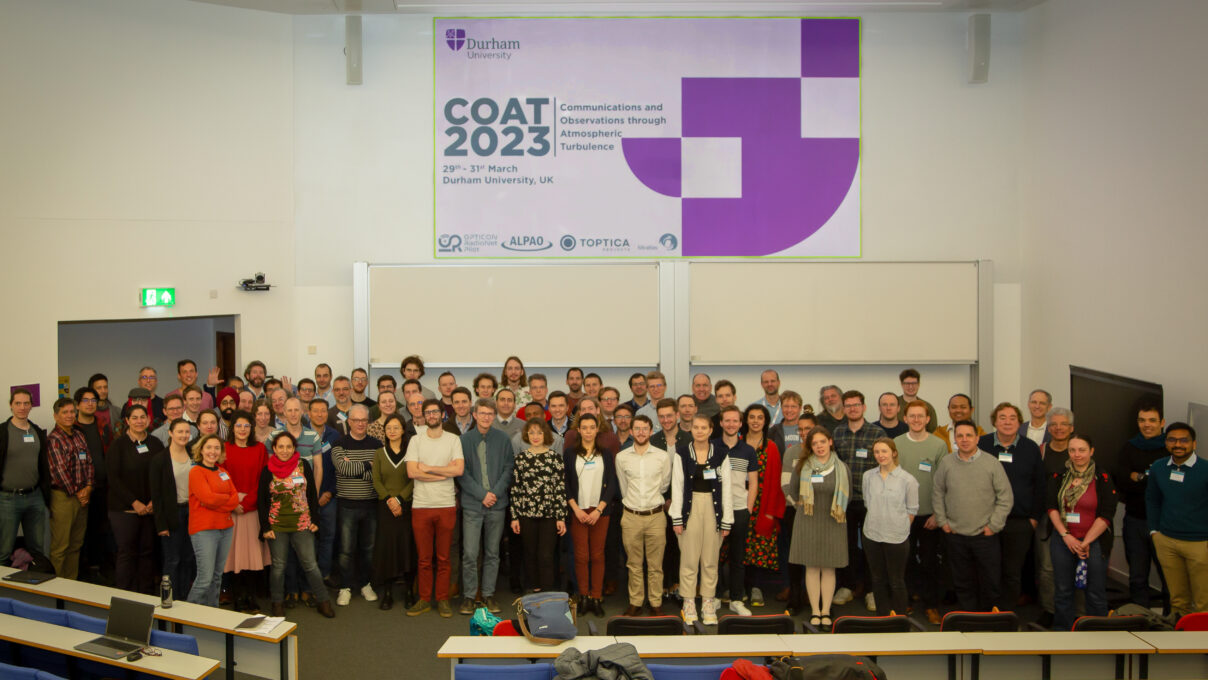
Topics
- Modelling, measurement & forecasting
- Impact of turbulence
- Adaptive optics & mitigation strategies
- Novel concepts and applications
- Experimental demonstrations
Programme
Presentations
Some presentations with permission from the author are available to download here. Please use the programme above to identify titles and authors.
Scope
In a large variety of fields, the development of ever more demanding optical systems now requires a thorough understanding of the impact of atmospheric turbulence together with the development of dedicated mitigation strategies. Originally driven by astronomy, these issues now concern near ground imaging, satellite observation, ground-space and near ground optical free-space telecommunications and laser focusing.
The workshop aims at giving an overview of current research activities in this field. It will address turbulence impact and mitigation, especially in challenging environments such as strong turbulence, strong scintillation, high apparent wind speeds induced by target tracking, anisoplanatism effects due to the field of view or point-ahead angle.
The following topics will, therefore, be addressed during the workshop:
knowledge on turbulence conditions (modelling, characterization & prediction of both Cn² and wind profiles), including free atmosphere and local turbulence; study of system performance with and without mitigation; mitigation strategies based on innovative optical solutions such as single aperture adaptive optics, multi-aperture or aperture diversity solutions, integrated optics architectures, new wave-front sensing approaches, sensorless solutions, laser guide stars, high performance control; lastly, image/signal pre- and post-processing techniques (deconvolution, PSF prediction, digital communications techniques), novel reception schemes and advanced digital signal processing.
Key Dates
Registration opens 31st October
Abstract deadline 14th December – Extended to 23rd December!
Registration deadline 28th February
Workshop 29th – 31st March 2023
Cost
Free! We may have some additional funding to support travel for students. To apply for this please indicate on the registration form.
Other Information
The workshop will be in-person held in Durham University, UK, from 29th – 31st March 2023. Live session broadcast will be made available.
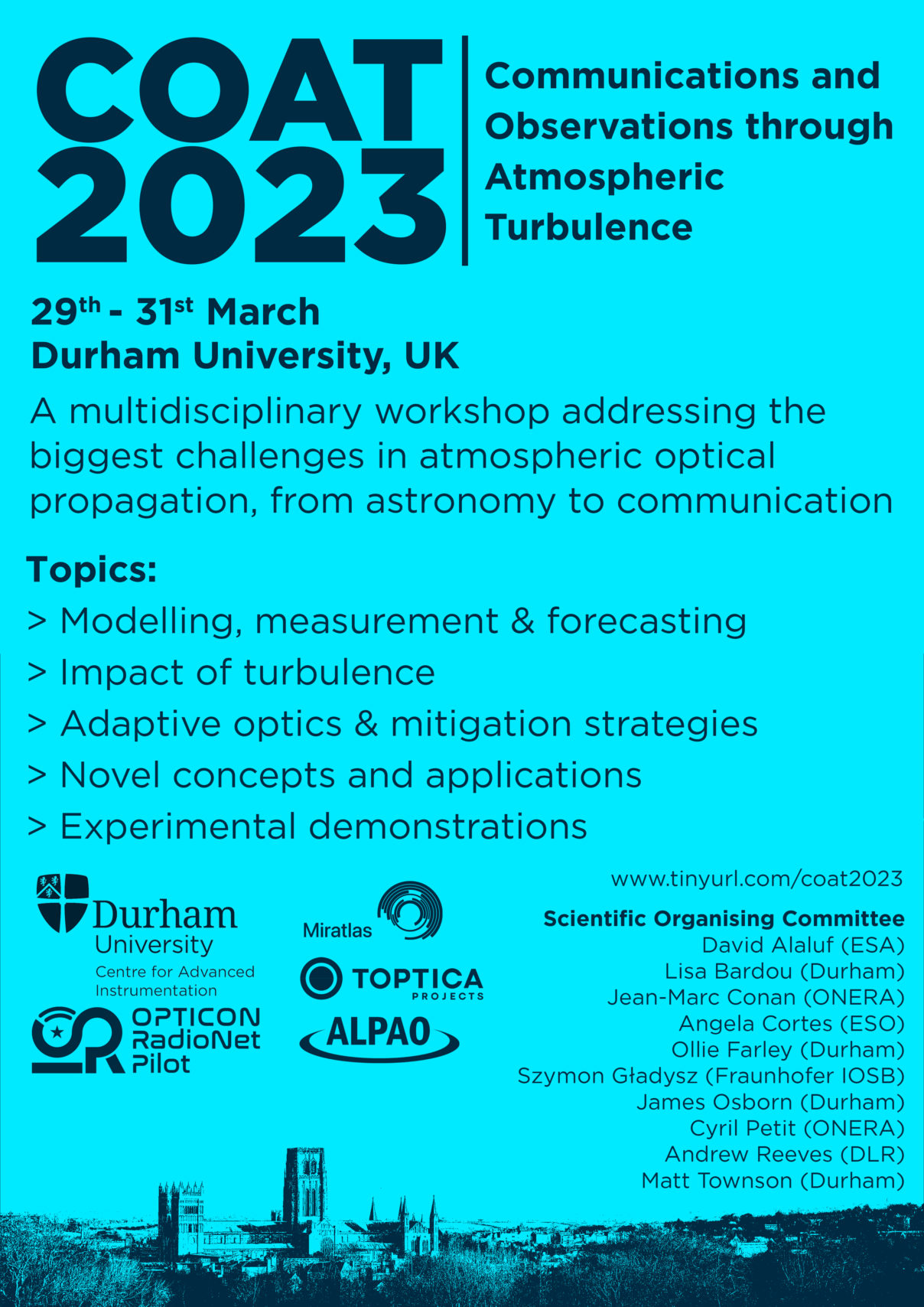
Proceedings
Speakers (oral talks and posters) shall submit a 4 to 10 page paper for the COAT proceedings.
Submission deadline: April 28th 2023 (send pdf as attachment to Email: [email protected])
On-line proceedings will be available on the open archive HAL (with proper referencing & DOI), see: https://hal.archives-ouvertes.fr/
Please use the same formatting as the SPIE conferences (note: this conference is not affiliated with SPIE, but the templates are under a Creative Commons license). You will find on the following web page the specifications for the manuscripts, links to Word and to LaTeX templates and examples (“samples”) for use on your computer, links to the overleaf online authoring tool, which contains the same LaTeX template, for those who use overleaf.
https://www.spie.org/conferences-and-exhibitions/event-resources/manuscript-submission-guidelines
SOC
- David Alaluf (ESA)
- Lisa Bardou (Durham)
- Jean-Marc Conan (ONERA)
- Angela Cortes (ESO)
- Ollie Farley (Durham)
- Szymon Gladysz (Fraunhofer IOSB)
- James Osborn (Durham)
- Cyril Petit (ONERA)
- Andrew Reeves (DLR)
- Matt Townson (Durham)
Funding
Durham University
Organised by Durham University, Department of Physics, Centre for Advanced Instrumentation
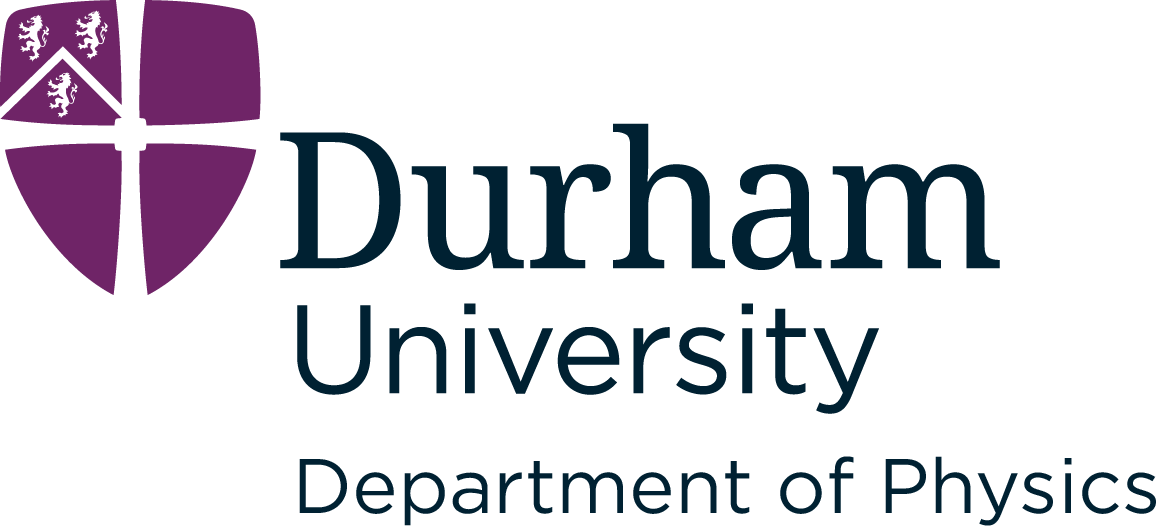
Miratlas
Miratlas is part of the development of disruptive New Space companies in France. By characterizing turbulence at night and during the day for the first time, Miratlas is working to address the issue of light propagation through the atmosphere.
These atmospheric measurements are crucial to ensure the continuity of optical telecommunication services between Earth and Space and address emerging challenges such as air pollution and climate change.
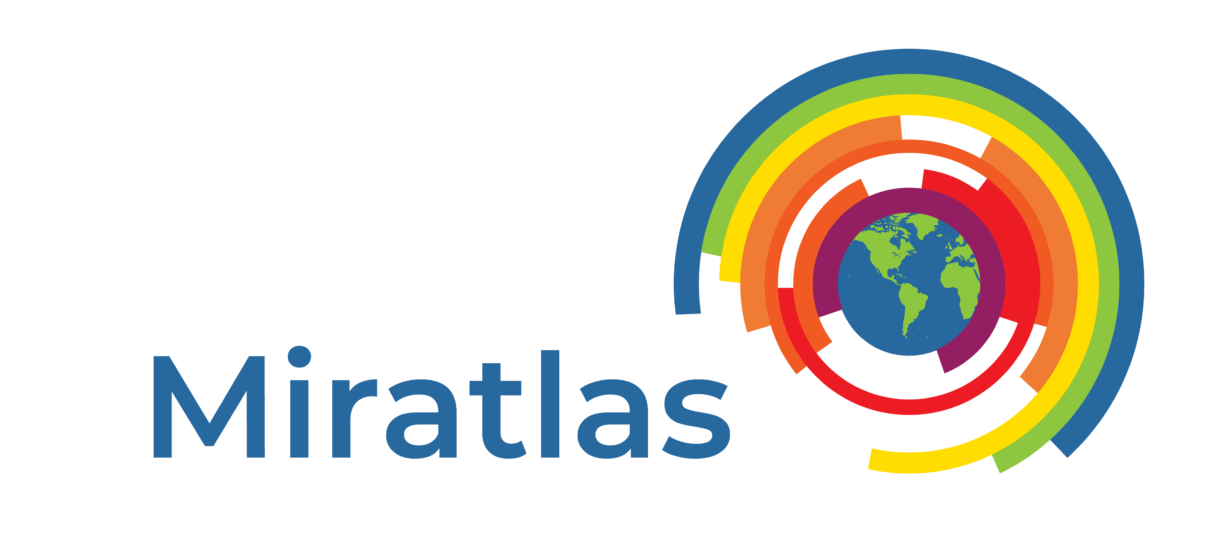
H2020 OPTICON RadioNet Pilot
The workshop is supported by European Union’s Horizon 2020 research and innovation programme grant agreement 101004719: OPTICON RadioNet Pilot.

ALPAO
ALPAO designs and manufactures a complete range of adaptive optics components and systems for use in research and industry. Our product’s unrivalled performance enables users to recover very high-resolution images.

Toptica
TOPTICA develops and manufactures high-end laser systems for scientific and industrial applications. The portfolio includes diode lasers, ultrafast fiber lasers, terahertz systems and frequency combs. Subsidiary TOPTICA Projects GmbH is the world’s leading supplier of high-power sodium guide star lasers for atmospheric adaptive optics. Applications include astronomy, satellite communications, space situational awareness, and atmospheric research, e.g. magnetometry.
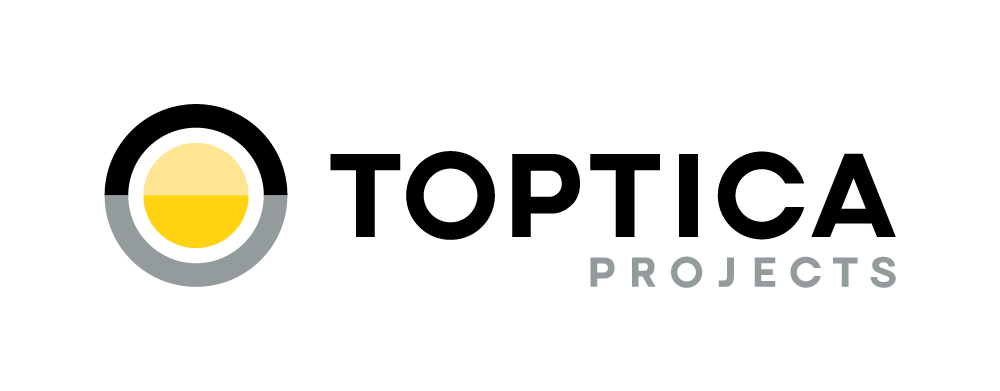
Remote Attendance
Join Zoom Meeting
https://durhamuniversity.zoom.us/j/99328556443?pwd=K21tMG9sRzV5V2t6RW1RdWMwVzJHUT09
Meeting ID: 993 2855 6443
Passcode: 830852
Registration
To register please fill in this form:
Sorry the registration is now closed.
This is a free workshop but registration is essential as space is limited. Please let us know if your plans change so we can assign your place to someone else. You will be asked for your title, co-authors and abstract (<500 words) during the registration process.
